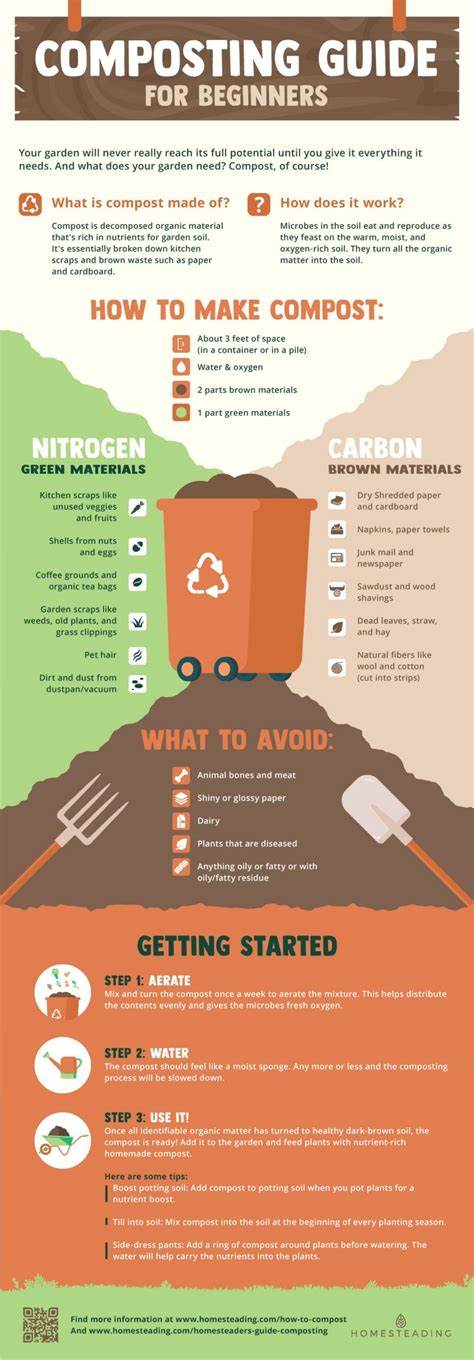Get Lawn Care Near You
Composting Guide For Beginners (An Illustrated Guide)
- by
- Gene Caballero
- August 02, 2021
Composting isn’t as simple as throwing some scraps into a pile in your backyard. When you really break it down there is much more to composting than most people think. Fortunately, this infographic covers a lot of the best tips and techniques you should keep in mind when you are composting.
What is compost made of?
In general, compost is made up of decomposed organic material. Often food scraps from fruits and vegetables. It’s essentially broken down table scraps and brown waste such as paper and cardboard.
How does compost break down?
Compost decomposes as microbes begin to reproduce and break down the materials you have added to the pile. These bacteria grow best in a warm, moist, oxygen-rich environment. They turn organic matter into the soil.
What is a good mixture for compost?
Get a roughly 3-foot space, preferably in a container. You will want to add 2 parts brown material, and one part green material. Additionally, you will want to be sure that you have enough moisture and oxygen flow.
What are "green materials" for composting?
Green materials are nitrogen-rich materials. When it comes to composting; green materials are unused fruits and veggies, shells from nuts and eggs, pet hair, dirt and dust, and things like coffee grounds and tea.
What are "brown materials" when it comes to composting?
Brown materials are carbon-rich. These materials include; cardboard, bills, napkins, paper towels, leaves, and even natural fibers like wool and cotton cut into strips.
What materials should I avoid adding to my compost?
Do not add shiny or glossy paper, animal bones, and meat, dairy, or anything fatty to your compost.
What are the steps to creating compost?
Simply add your ingredients, aerate regularly, water, and then use it in your garden! Simple enough.
At the end of the day, composting isn’t that difficult, but you want to be sure that you manage your compost properly. Best of all your compost can be used in your garden beds to make them more nutrient-rich and healthy.
This infographic is from Homesteading.com. Share this with your friends and family who may be interested in getting their compost piles started too! The world is better when we compost together.
Powered by Froala Editor








